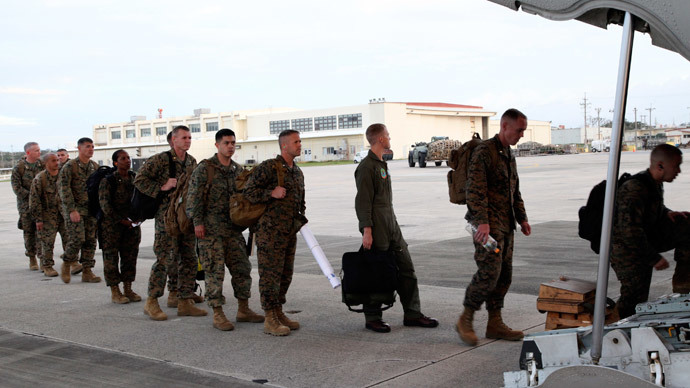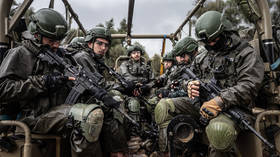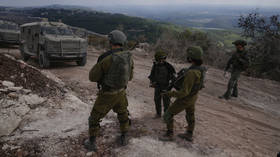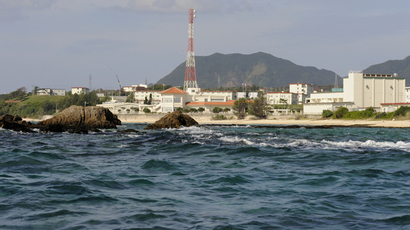Two-thirds of US military sex-abuse perpetrators in Japan 'not incarcerated'

Most perpetrators of sex crimes at US military bases in Japan have not been going to prison for their offenses. Instead, they've received punishments including demotions, fines, or even just a letter of reprimand, Freedom of Information documents reveal.
Over 1,000 records acquired by AP paint a
“disturbing” picture of how allegations have been
handled. The news agency said the process “verged on the
chaotic.” Reports of sex crimes filed between 2005 and 2013
showed that only one-third of 244 service members who warranted
some form of punishment were incarcerated.
In 30 cases, a letter of reprimand was the only consequence of
the allegation.
However, there were discrepancies between the different military
branches, with inconsistencies apparent between how sex crime
accusations were treated in the Marines and the Air Force.
The Marines sent 53 out of 270 sex offenders to prison, marking a
sharp contrast with the number of jail sentences in the Navy -
where only 15 out of 203 offenders were given jail time. Some 70
other Navy personnel received a court-martial or another form of
punishment.
The Air Force only sent 21 out of 124 sex offenders to prison,
making the military branch the most lax when it comes to issuing
appropriate punishments.
Two specific cases were cited in the documents. Two service
members overseen by the 1st Marine Aircraft Wing alleged they had
been sexually abused after a night out. They had evidence to back
their claims. One suspect was given six years behind bars, while
the other was merely incarcerated at his base for 30 days.

AP also reported a decline in such cases over the time period studied, with a growing number of accusers dropping out of investigations. The agency suggested the data was symptomatic of a loss of confidence in the system for dealing with sexual assaults, or an unwillingness to speak with investigators.
“How many more rapes do we have to endure to wait and see what reforms are needed?” asked Senator Kirsten Gillibrand (D-NY), chair of the Senate Armed Services personnel subcommittee.
Congress has been pushing to remove the authority of senior officers to decide whether serious cases go to trial, and Gillibrand has spearheaded a bill that is likely to go before the Senate in the coming week.
Air Force Col. Alan Metzler, deputy director of the Defense Department's Sexual Assault Prevention and Response Office, told AP that the department “has been very transparent that we do have a problem.”
However, some senior US military leaders oppose the plan.
"Taking the commander out of the loop never solved any problem," Sen. Lindsey Graham (R-SC), the personnel subcommittee's top Republican, told AP. "It would dismantle the military justice system beyond sexual assaults. It would take commanders off the hook for their responsibility to fix this problem."
The number of sexual assault cases taken to courts-martial throughout the military has grown from 42 percent in 2009 to 68 percent in 2012, according to department data. However, this trend is not reflected in Japanese cases. Out of 473 allegations against sailors and Marines in Japan between 2005 and 2013, only 116 - 24 percent – ended up in courts-martial.














